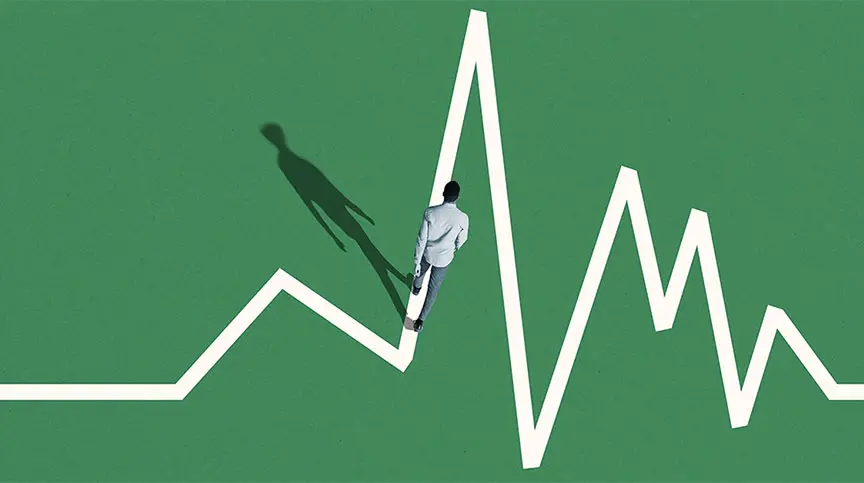4 Components of Good Health and Effective Leadership
At our Leadership at the Peak program, we’ve worked with senior executives from all around the world to help C-suite leaders become more “fit to lead” in every respect, including by focusing on the connection between health and leadership.
While good health may or may not make (or break) a good leader, it does contribute to good brain function, sustained energy output, and being physically resilient. These are important attributes for leaders, but the behaviors that contribute to these qualities are often sorely neglected.
Pretty much everyone wants to be healthy. But in order to attain good health, we must engage in healthy behaviors. While that seems obvious, therein lies the rub.
There are 4 pillars of good health:
- Eat a nutrient-rich, health-promoting diet. What you eat fuels your brain.
- Get adequate, quality sleep. Being tired at work compromises your decision-making.
- Engage in regular physical activity. Understand the connection between exercise and leadership.
- Avoid turning pressure into stress. Avoid rumination, the #1 reason you are stressed.
All are important in their own right for promoting health and leadership, but these pillars are also interconnected and work synergistically. The sum of the whole is greater than the sum of the parts. Neglect one and the rest often come up lacking. Take care of one, and this often improves the ability to take care of the others. For example:
- Sleep and nutrition: You know that poor sleep hurts brain function and reduces productivity, but it also makes eating well and exercising more challenging. Lack of sleep hurts our internal mechanisms of satiation: ghrelin, a hormone that increases appetite, goes up, and leptin, a hormone that suppresses appetite, goes down. This increases the likelihood of reaching for junk or calorie-rich foods. And eating foods that are nutrient-poor and calorie-rich can, in turn, hurt your sleep.
- Sleep and exercise: Chronic sleep deprivation can also hinder exercise efforts. For example, lack of sleep increases the “perceived effort” of exercise. It makes exercise feel harder to do, and with less energy available, you may just want to skip working out altogether. Lack of exercise, in turn, contributes to lower quality sleep.
Lack of sleep, poor eating habits, and irregular exercise will all leave you less able to cope with pressures and an increased chance that those pressures will turn into stress. And stress, in turn, makes it more difficult to sleep, eat, and exercise well!
Engage in this negative cycle long enough and problems start to creep in — reduced stamina, weight gain, increased blood pressure, increased susceptibility to illness, reductions in cognitive performance, achy joints, fatigue, and so on. Job performance is compromised, not to mention increased risk for conditions like diabetes, heart disease, dementia, and stroke. The bottom line is that not taking care of yourself will hurt your health and leadership.
A Tip for Health and Leadership Success: Win the Morning, Win the Day
Focusing on one aspect like sleep, food, or exercise will often prompt improvements in other areas of health and leadership. For example, getting regular morning exercise can prompt positive adjustments to sleep habits. Getting up a bit earlier to fit in a workout might prompt going to bed a little earlier.
Going to bed earlier takes advantage of that melatonin spike we see at around 10 p.m. Sleep time before midnight is like putting money in the bank — that’s when the deepest and most restorative sleep occurs.
Morning exercise has also been shown to have the greatest positive impact on sleep, as compared to exercise at noon or later in the day. If done outside, it also encourages early morning daylight exposure, another factor shown to help with increased alertness during the day and better sleep.
Given all this, we often encourage leaders to “win the morning, win the day,” — that is, start the day with some vigorous physical activity, and this will have a positive ripple effect on other areas of your health — and leadership.
Ready to Take the Next Step?
Help your people understand the connection between health and leadership and develop resiliency habits that create conditions for peak performance with our resilience-building solutions, which will help them avoid burnout — and burn bright instead.







